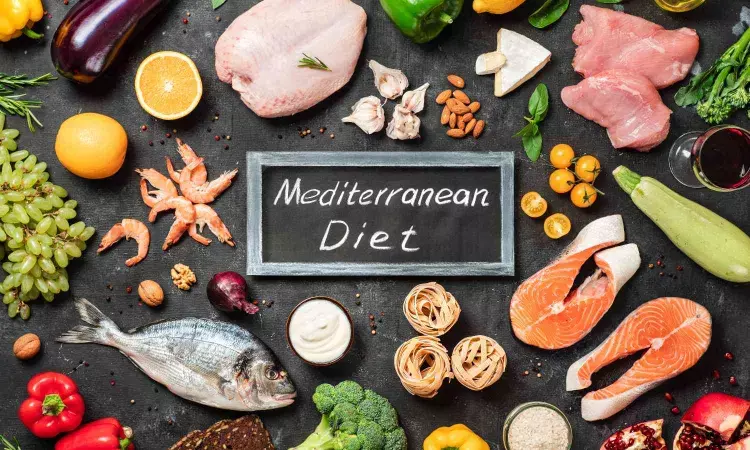- Home
- Medical news & Guidelines
- Anesthesiology
- Cardiology and CTVS
- Critical Care
- Dentistry
- Dermatology
- Diabetes and Endocrinology
- ENT
- Gastroenterology
- Medicine
- Nephrology
- Neurology
- Obstretics-Gynaecology
- Oncology
- Ophthalmology
- Orthopaedics
- Pediatrics-Neonatology
- Psychiatry
- Pulmonology
- Radiology
- Surgery
- Urology
- Laboratory Medicine
- Diet
- Nursing
- Paramedical
- Physiotherapy
- Health news
- Fact Check
- Bone Health Fact Check
- Brain Health Fact Check
- Cancer Related Fact Check
- Child Care Fact Check
- Dental and oral health fact check
- Diabetes and metabolic health fact check
- Diet and Nutrition Fact Check
- Eye and ENT Care Fact Check
- Fitness fact check
- Gut health fact check
- Heart health fact check
- Kidney health fact check
- Medical education fact check
- Men's health fact check
- Respiratory fact check
- Skin and hair care fact check
- Vaccine and Immunization fact check
- Women's health fact check
- AYUSH
- State News
- Andaman and Nicobar Islands
- Andhra Pradesh
- Arunachal Pradesh
- Assam
- Bihar
- Chandigarh
- Chattisgarh
- Dadra and Nagar Haveli
- Daman and Diu
- Delhi
- Goa
- Gujarat
- Haryana
- Himachal Pradesh
- Jammu & Kashmir
- Jharkhand
- Karnataka
- Kerala
- Ladakh
- Lakshadweep
- Madhya Pradesh
- Maharashtra
- Manipur
- Meghalaya
- Mizoram
- Nagaland
- Odisha
- Puducherry
- Punjab
- Rajasthan
- Sikkim
- Tamil Nadu
- Telangana
- Tripura
- Uttar Pradesh
- Uttrakhand
- West Bengal
- Medical Education
- Industry
Mediterranean Diet Linked to Lower COVID-19 Risk, but Effects on Symptoms and Severity Uncertain, Review Finds

Indonesia: A recent systematic review published in PLOS ONE has highlighted the potential benefits of adhering to the Mediterranean diet as a strategy for reducing COVID-19 risk.
"Higher adherence to the Mediterranean diet significantly lowers the risk of contracting COVID-19. However, the impact of this diet on the symptoms and severity of the disease remains uncertain and requires further research, the researchers observed," the researchers wrote.
The Mediterranean diet, renowned for its emphasis on fruits, vegetables, whole grains, legumes, nuts, and olive oil, has long been associated with various health benefits, including reduced risk of chronic diseases such as cardiovascular disease and diabetes. This dietary pattern is also noted for its anti-inflammatory and antioxidant properties, which may be particularly relevant in the context of viral infections.
Against the above background, Andre Marolop Pangihutan Siahaan, Department of Neurosurgery, Faculty of Medicine, Universitas Sumatera Utara, Medan, North Sumatera, Indonesia, and colleagues aimed to determine the association between Mediterranean Diet and COVID-19, COVID-19 symptoms, and COVID-19 severity.
For this purpose, the researchers conducted a literature search in August 2023 through Pubmed, Proquest, and Google Scholar. Studies were included if they involved human subjects, reported on the association between Mediterranean diet adherence and COVID-19 infection risk, symptoms, or severity, and were available in English. Excluded were reviews, editorials, letters, replies, systematic reviews, meta-analyses, animal studies, and duplicates.
The risk of bias in the included studies was evaluated using the Newcastle-Ottawa Scale (NOS). Data were synthesized narratively, with each study compared and a structured summary developed.
Based on the review, the researchers reported the following findings:
- After the selection process, six articles were included, with a sample size of 55,489 patients.
- All studies were observational studies and assessed Mediterranean diet adherence using food frequency questionnaires (FFQ), with a scoring system varied between each study.
- Four studies found a significant correlation between increased adherence to Mediterranean Diet and reduced COVID-19 risk, while one study indicated a non-significant association.
- One study reported a significant association between higher adherence to the Mediterranean Diet and COVID-19 symptoms, but three studies reported a non-significant association.
- One study found that individuals with higher adherence to the Mediterranean Diet had a reduced likelihood of developing severe COVID-19, however, two studies yielded inconclusive findings.
A notable limitation across all studies was the reliance on self-administered food frequency questionnaires (FFQs), which are susceptible to biases, including recall and estimation errors.
"Lower odds ratios (ORs) were consistently associated with higher adherence to the Mediterranean diet. In all outcomes of the included studies, ORs varied between 0.06 and 0.992, though the significance levels differed across the various outcomes," the researchers reported.
They concluded that overall analyses indicate high adherence to the Mediterranean diet is a protective factor against COVID-19. However, the diet's impact on COVID-19 symptoms and severity remains unclear.
Reference:
Halim, C., Howen, M., Pratama, T., Harahap, I. R., Ganesh, L. J., & Pangihutan Siahaan, A. M. (2024). Relevance of Mediterranean diet as a nutritional strategy in diminishing COVID-19 risk: A systematic review. PLOS ONE, 19(8), e0301564. https://doi.org/10.1371/journal.pone.0301564
Dr Kamal Kant Kohli-MBBS, DTCD- a chest specialist with more than 30 years of practice and a flair for writing clinical articles, Dr Kamal Kant Kohli joined Medical Dialogues as a Chief Editor of Medical News. Besides writing articles, as an editor, he proofreads and verifies all the medical content published on Medical Dialogues including those coming from journals, studies,medical conferences,guidelines etc. Email: drkohli@medicaldialogues.in. Contact no. 011-43720751


